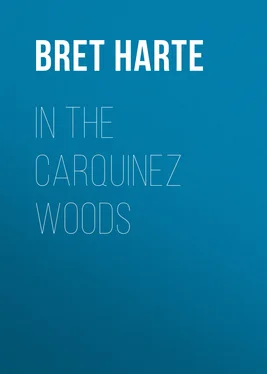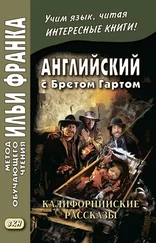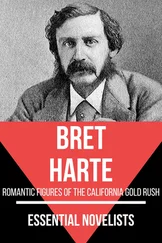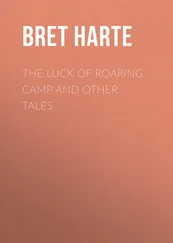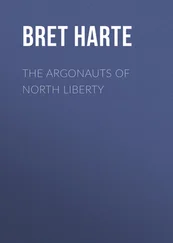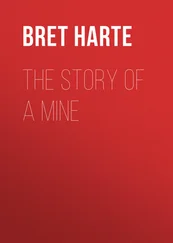Bret Harte - In the Carquinez Woods
Здесь есть возможность читать онлайн «Bret Harte - In the Carquinez Woods» — ознакомительный отрывок электронной книги совершенно бесплатно, а после прочтения отрывка купить полную версию. В некоторых случаях можно слушать аудио, скачать через торрент в формате fb2 и присутствует краткое содержание. Жанр: foreign_sf, literature_19, foreign_antique, foreign_prose, на английском языке. Описание произведения, (предисловие) а так же отзывы посетителей доступны на портале библиотеки ЛибКат.
- Название:In the Carquinez Woods
- Автор:
- Жанр:
- Год:неизвестен
- ISBN:нет данных
- Рейтинг книги:4 / 5. Голосов: 1
-
Избранное:Добавить в избранное
- Отзывы:
-
Ваша оценка:
- 80
- 1
- 2
- 3
- 4
- 5
In the Carquinez Woods: краткое содержание, описание и аннотация
Предлагаем к чтению аннотацию, описание, краткое содержание или предисловие (зависит от того, что написал сам автор книги «In the Carquinez Woods»). Если вы не нашли необходимую информацию о книге — напишите в комментариях, мы постараемся отыскать её.
In the Carquinez Woods — читать онлайн ознакомительный отрывок
Ниже представлен текст книги, разбитый по страницам. Система сохранения места последней прочитанной страницы, позволяет с удобством читать онлайн бесплатно книгу «In the Carquinez Woods», без необходимости каждый раз заново искать на чём Вы остановились. Поставьте закладку, и сможете в любой момент перейти на страницу, на которой закончили чтение.
Интервал:
Закладка:
CHAPTER II
It was a peculiarity of the Carquinez Wood that it stood apart and distinct in its gigantic individuality. Even where the integrity of its own singular species was not entirely preserved, it admitted no inferior trees. Nor was there any diminishing fringe on its outskirts; the sentinels that guarded the few gateways of the dim trails were as monstrous as the serried ranks drawn up in the heart of the forest. Consequently, the red highway that skirted the eastern angle was bare and shadeless, until it slipped a league off into a watered valley and refreshed itself under lesser sycamores and willows. It was here the newly born city of Excelsior, still in its cradle, had, like an infant Hercules, strangled the serpentine North Fork of the American river, and turned its life current into the ditches and flumes of the Excelsior mines.
Newest of the new houses that seemed to have accidentally formed its single, straggling street was the residence of the Rev. Winslow Wynn, not unfrequently known as “Father Wynn,” pastor of the First Baptist church. The “pastorage,” as it was cheerfully called, had the glaring distinction of being built of brick, and was, as had been wickedly pointed out by idle scoffers, the only “fireproof” structure in town. This sarcasm was not, however, supposed to be particularly distasteful to “Father Wynn,” who enjoyed the reputation of being “hail fellow, well met” with the rough mining element, who called them by their Christian names, had been known to drink at the bar of the Polka Saloon while engaged in the conversion of a prominent citizen, and was popularly said to have no “gospel starch” about him. Certain conscious outcasts and transgressors were touched at this apparent unbending of the spiritual authority. The rigid tenets of Father Wynn’s faith were lost in the supposed catholicity of his humanity. “A preacher that can jine a man when he’s histin’ liquor into him, without jawin’ about it, ought to be allowed to wrestle with sinners and splash about in as much cold water as he likes,” was the criticism of one of his converts. Nevertheless, it was true that Father Wynn was somewhat loud and intolerant in his tolerance. It was true that he was a little more rough, a little more frank, a little more hearty, a little more impulsive than his disciples. It was true that often the proclamation of his extreme liberality and brotherly equality partook somewhat of an apology. It is true that a few who might have been most benefited by this kind of gospel regarded him with a singular disdain. It is true that his liberality was of an ornamental, insinuating quality, accompanied with but little sacrifice; his acceptance of a collection taken up in a gambling saloon for the rebuilding of his church, destroyed by fire, gave him a popularity large enough, it must be confessed, to cover the sins of the gamblers themselves, but it was not proven that HE had ever organized any form of relief. But it was true that local history somehow accepted him as an exponent of mining Christianity, without the least reference to the opinions of the Christian miners themselves.
The Rev. Mr. Wynn’s liberal habits and opinions were not, however, shared by his only daughter, a motherless young lady of eighteen. Nellie Wynn was in the eye of Excelsior an unapproachable divinity, as inaccessible and cold as her father was impulsive and familiar. An atmosphere of chaste and proud virginity made itself felt even in the starched integrity of her spotless skirts, in her neatly gloved finger-tips, in her clear amber eyes, in her imperious red lips, in her sensitive nostrils. Need it be said that the youth and middle age of Excelsior were madly, because apparently hopelessly, in love with her? For the rest, she had been expensively educated, was profoundly ignorant in two languages, with a trained misunderstanding of music and painting, and a natural and faultless taste in dress.
The Rev. Mr. Wynn was engaged in a characteristic hearty parting with one of his latest converts, upon his own doorstep, with admirable al fresco effect. He had just clapped him on the shoulder. “Good-by, good-by, Charley, my boy, and keep in the right path; not up, or down, or round the gulch, you know—ha, ha!—but straight across lots to the shining gate.” He had raised his voice under the stimulus of a few admiring spectators, and backed his convert playfully against the wall. “You see! we’re goin’ in to win, you bet. Good-by! I’d ask you to step in and have a chat, but I’ve got my work to do, and so have you. The gospel mustn’t keep us from that, must it, Charley? Ha, ha!”
The convert (who elsewhere was a profane expressman, and had become quite imbecile under Mr. Wynn’s active heartiness and brotherly horse-play before spectators) managed, however, to feebly stammer with a blush something about “Miss Nellie.”
“Ah, Nellie. She, too, is at her tasks—trimming her lamp—you know, the parable of the wise virgins,” continued Father Wynn hastily, fearing that the convert might take the illustration literally. “There, there—good-by. Keep in the right path.” And with a parting shove he dismissed Charley and entered his own house.
That “wise virgin,” Nellie, had evidently finished with the lamp, and was now going out to meet the bridegroom, as she was fully dressed and gloved, and had a pink parasol in her hand, as her father entered the sitting-room. His bluff heartiness seemed to fade away as he removed his soft, broad-brimmed hat and glanced across the too fresh-looking apartment. There was a smell of mortar still in the air, and a faint suggestion that at any moment green grass might appear between the interstices of the red-brick hearth. The room, yielding a little in the point of coldness, seemed to share Miss Nellie’s fresh virginity, and, barring the pink parasol, set her off as in a vestal’s cell.
“I supposed you wouldn’t care to see Brace, the expressman, so I got rid of him at the door,” said her father, drawing one of the new chairs towards him slowly, and sitting down carefully, as if it were a hitherto untried experiment.
Miss Nellie’s face took a tint of interest. “Then he doesn’t go with the coach to Indian Spring to-day?”
“No; why?”
“I thought of going over myself to get the Burnham girls to come to choir-meeting,” replied Miss Nellie carelessly, “and he might have been company.”
“He’d go now, if he knew you were going,” said her father; “but it’s just as well he shouldn’t be needlessly encouraged. I rather think that Sheriff Dunn is a little jealous of him. By the way, the sheriff is much better. I called to cheer him up to-day” (Mr. Wynn had in fact tumultuously accelerated the sick man’s pulse), “and he talked of you, as usual. In fact, he said he had only two things to get well for. One was to catch and hang that woman Teresa, who shot him; the other—can’t you guess the other?” he added archly, with a faint suggestion of his other manner.
Miss Nellie coldly could not.
The Rev. Mr. Wynn’s archness vanished. “Don’t be a fool,” he said dryly. “He wants to marry you, and you know it.”
“Most of the men here do,” responded Miss Nellie, without the least trace of coquetry. “Is the wedding or the hanging to take place first, or together, so he can officiate at both?”
“His share in the Union Ditch is worth a hundred thousand dollars,” continued her father; “and if he isn’t nominated for district judge this fall, he’s bound to go to the legislature, anyway. I don’t think a girl with your advantages and education can afford to throw away the chance of shining in Sacramento, San Francisco, or, in good time, perhaps even Washington.”
Miss Nellie’s eyes did not reflect entire disapproval of this suggestion, although she replied with something of her father’s practical quality.
Читать дальшеИнтервал:
Закладка:
Похожие книги на «In the Carquinez Woods»
Представляем Вашему вниманию похожие книги на «In the Carquinez Woods» списком для выбора. Мы отобрали схожую по названию и смыслу литературу в надежде предоставить читателям больше вариантов отыскать новые, интересные, ещё непрочитанные произведения.
Обсуждение, отзывы о книге «In the Carquinez Woods» и просто собственные мнения читателей. Оставьте ваши комментарии, напишите, что Вы думаете о произведении, его смысле или главных героях. Укажите что конкретно понравилось, а что нет, и почему Вы так считаете.
